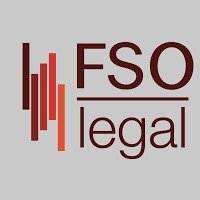Best Debt & Collection Lawyers in Evansville
Share your needs with us, get contacted by law firms.
Free. Takes 2 min.
List of the best lawyers in Evansville, United States
About Debt & Collection Law in Evansville, United States
Debt and Collection Law in Evansville, and the wider United States, regulates how debts can be collected by creditors. The Fair Debt Collection Practices Act (FDCPA) is a federal law that protects consumers from abusive, unfair, or deceptive practices by debt collectors. However, it’s important to note that this law applies only to third-party collectors and not the original creditor. Depending on the nature and status of the debt, state laws like those in Indiana may also apply.
Why You May Need a Lawyer
Engaging the services of a lawyer can be very beneficial in numerous circumstances. Firstly, if you are being harassed by debt collectors, a lawyer can help stop these practices. Lawyers can also assist when your rights under the FDCPA or state laws have been violated, when you are unsure of your rights, or if you are being sued by a debt collector. Furthermore, the legal expertise can be crucial in navigating bankruptcy declaration and understanding any long-term legal and financial ramifications that could ensue.
Local Laws Overview
In addition to the FDCPA, Indiana has its own set of laws governing debt and collection. These provide further protections for consumers. For example, the state statute of limitations on debts is typically six years, depending on the type of debt. This means a creditor or collector has that length of time to sue you for an unpaid debt. Understand that acknowledging an old debt, paying a small amount, or accepting a payment plan could restart this timeline. Engaging an Evansville attorney would help explain these terms and rules better.
Frequently Asked Questions
What can I do if I am being harassed by debt collectors?
If you're being harassed by debt collectors, you can request in writing for the agency to cease contact. It's also recommended to talk to a lawyer to determine whether your rights under the FDCPA or local laws have been violated.
How long can a debt collector attempt to collect a debt?
In the state of Indiana, the statute of limitations for debts is generally six years, but the precise length can vary depending on the type of debt. After this time, a debt collector cannot sue to collect the debt.
If I declare bankruptcy, will all my debts be erased?
Not necessarily. While many unsecured debts such as credit card bills or medical debts may be discharged in a bankruptcy, other types of debts such as student loans, child support, alimony and certain types of tax debts typically cannot be discharged.
What happens if a debt collector sues me?
If a debt collector sues you and wins, they may be able to garnish your wages or put a lien on your property. If a collector threatens to sue, consult with an attorney as soon as possible.
Can a debt collector contact my family, friends or employer?
Under the FDCPA, a debt collector can generally only contact third parties to obtain your contact information unless you have specifically agreed to allow them to do so.
Additional Resources
The Indiana Department of Financial Institutions is a valuable resource for information regarding local laws. National bodies like the Federal Trade Commission (FTC) and Consumer Financial Protection Bureau (CFPB) also provide useful resources related to debt and collections.
Next Steps
If you need legal assistance related to a debt or collection issue, hunt for a local attorney specializing in this area of law. The Evansville Bar Association offers a lawyer referral service that can help you find a suitable attorney. Don't hesitate to engage professional help when dealing with debt and collection issues. An attorney can provide you with the necessary advice and guidance to protect your interests and navigate the complex legal landscape.
Lawzana helps you find the best lawyers and law firms in Evansville through a curated and pre-screened list of qualified legal professionals. Our platform offers rankings and detailed profiles of attorneys and law firms, allowing you to compare based on practice areas, including Debt & Collection, experience, and client feedback.
Each profile includes a description of the firm's areas of practice, client reviews, team members and partners, year of establishment, spoken languages, office locations, contact information, social media presence, and any published articles or resources. Most firms on our platform speak English and are experienced in both local and international legal matters.
Get a quote from top-rated law firms in Evansville, United States — quickly, securely, and without unnecessary hassle.
Disclaimer:
The information provided on this page is for general informational purposes only and does not constitute legal advice. While we strive to ensure the accuracy and relevance of the content, legal information may change over time, and interpretations of the law can vary. You should always consult with a qualified legal professional for advice specific to your situation.
We disclaim all liability for actions taken or not taken based on the content of this page. If you believe any information is incorrect or outdated, please contact us, and we will review and update it where appropriate.









